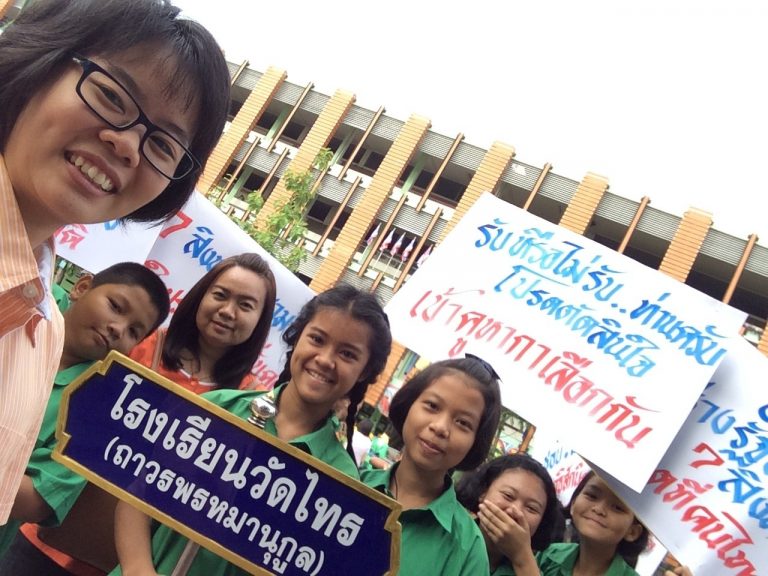Embrace the possibilities as women march towards equity.
Believe it or not, there is a day in this world to celebrate women in science. It is called the International Day of Women and Girls in Science, which falls on February 11th of every year. This day was created to promote the participation of women in science and to give them more space in this field.

Although our society has become more gender equal, especially in terms of careers, it is undeniable that there is still gender inequality in some fields. One field with relatively few women working in it is Science, Technology, Engineering, and Mathematics (STEM) which is important for economic development.
In this article, we will introduce you to one of our alumni who is a leader of change working in this field: Chanakarn Chucheepchuenkamol, cohort 2 who is currently a scientist at the Department of Science Service.
When asked about the challenges of being a woman in this field, Fon said:
“There is relatively little gender inequality in the field I studied; Chemistry field because there are about equal numbers of men and women. But there are still some challenges, especially when going out into the field. My work is to conduct research and testing on paper pulp. However, when there is fieldwork, the supervisor usually chooses men first because it is more convenient as sometimes we may have to come back late or there may be inconveniences with accommodation.”
“Sometimes we don’t get the chance, so we don’t get to prove ourselves. But every time I get to go out into the field, I do my best. I was quick to adapt and I didn’t have any problems with accommodation. And I let them know that I can do it.”
“As for working in the lab, I gave my all. If there are problems that no one has ever solved before, I will attempt and prove myself.”
For Fon, working with Teach For Thailand was a turning point in her life because it made her not afraid to try new things.
“When I went to study in Sweden, there were very few Thai students at that time, and everyone was worried. I was the only one who wasn’t worried, and I was also the only Thai person who participated in the university’s activities, which were only attended by Swedes.”
“Working with Teach For Thailand was a challenge. I think it was more challenging than working in science because it involved working with people, and people are unpredictable. With chemicals, we can still predict whether something will work or not and how to adjust the experiment. But with people, you can’t predict anything. Teach For Thailand made other challenges I faced in life easier.”
The new challenge that Fon is facing is the issue of pushing for food packaging paper standards, which she has been working on with her agency for about 2 years now.
“Thailand does not yet have any serious testing of food packaging paper standards. This is very important because paper comes into direct contact with food, and if there are residues, they can easily enter the body. I have been working on this issue and have talked to many different parties, such as the Department of Industrial Promotion. I would like to see a law passed that would require all factories that produce food packaging paper to send their products to our lab for testing.”
Fon is a woman who is a role model for trying new things, and the science field needs this kind of attitude. It is because she has the ‘sense of possibilities’ And it is this value that drives the women’s rights movement to the point where women are more equal to other genders today.
Teach For Thailand would like to invite everyone to encourage and support the women around you, especially women in STEM who face many challenges and are an important force in driving the country forward. Without these women, the science field would be missing a very important perspective.

